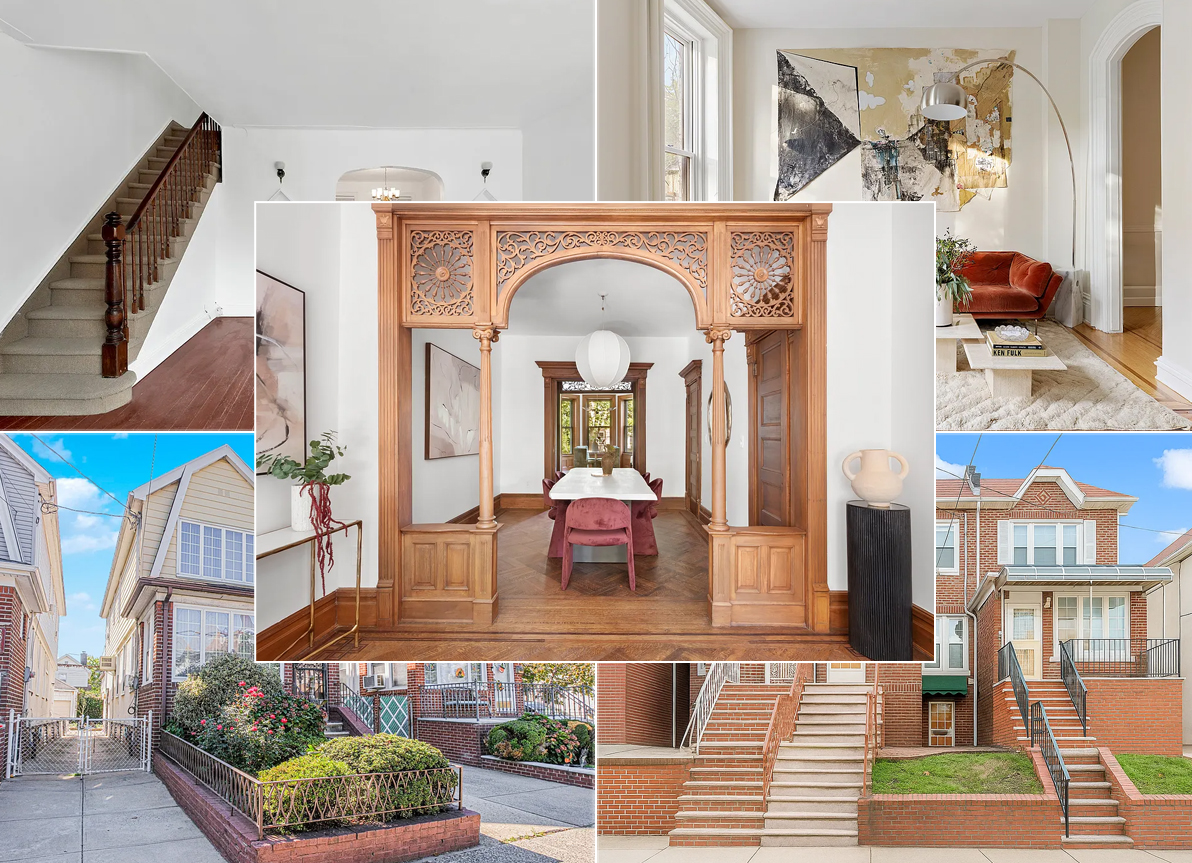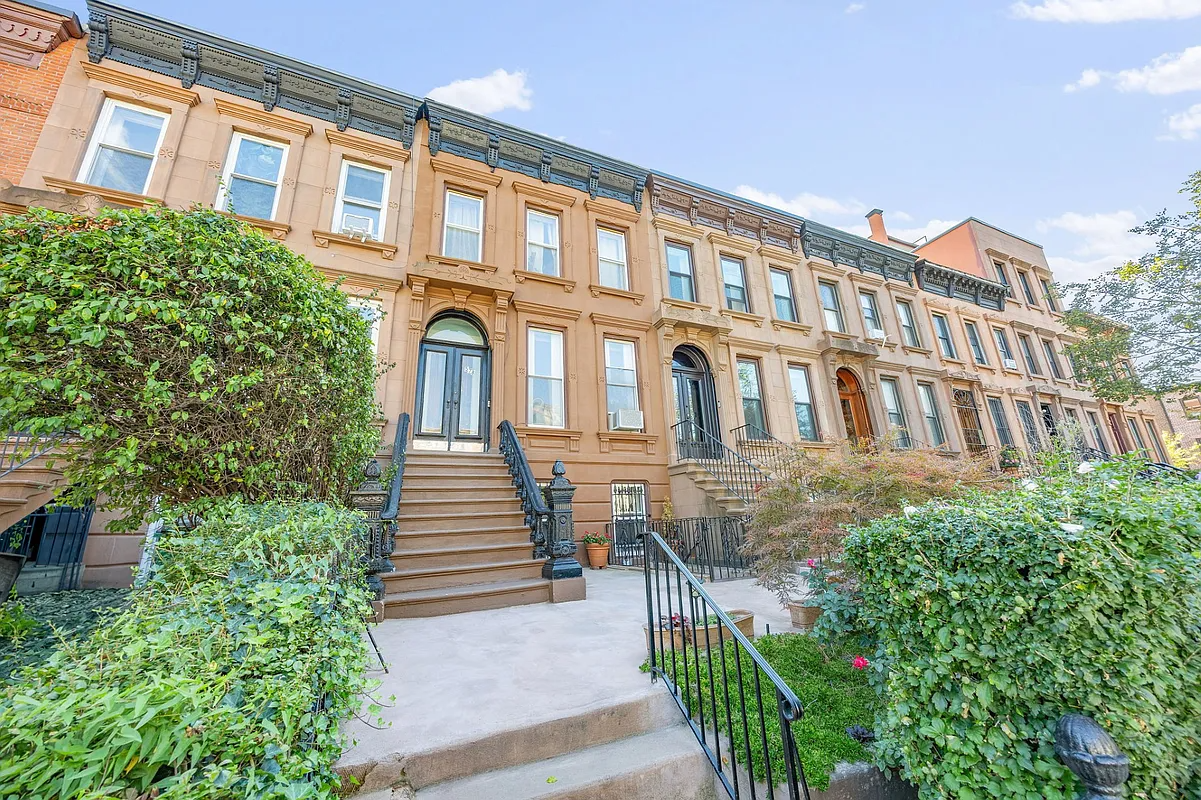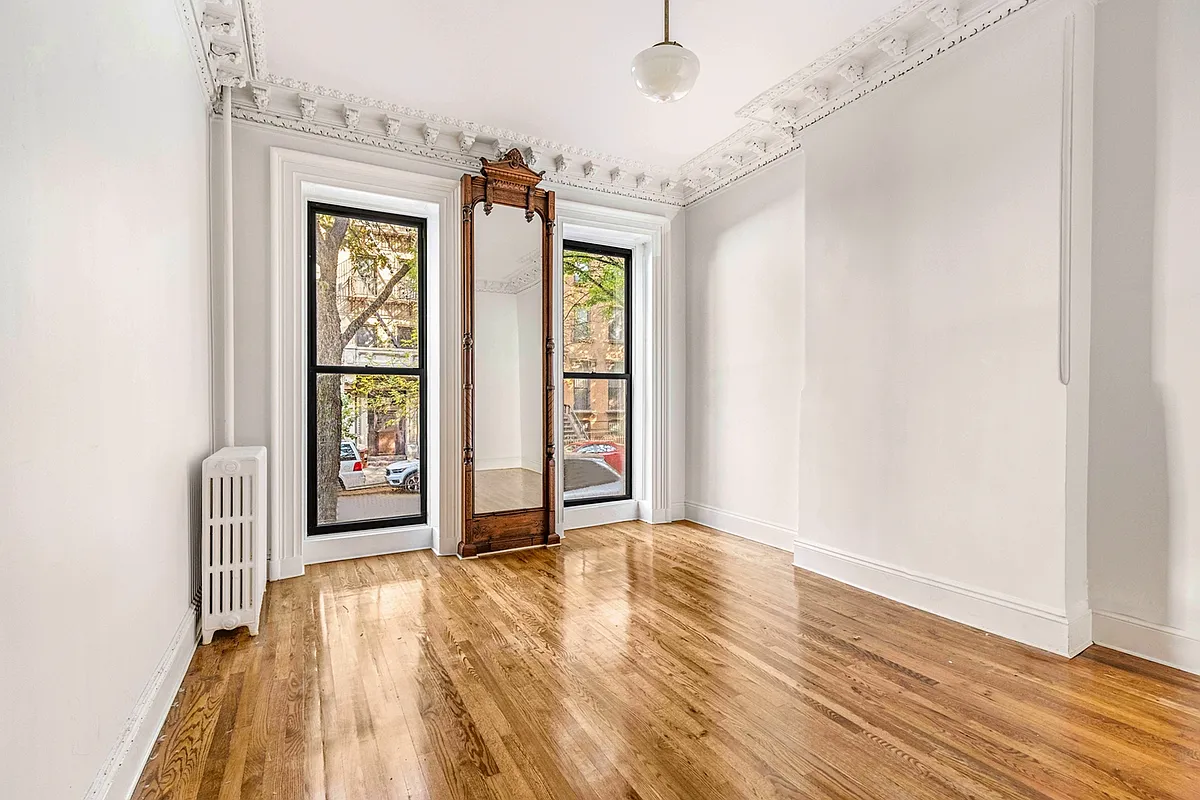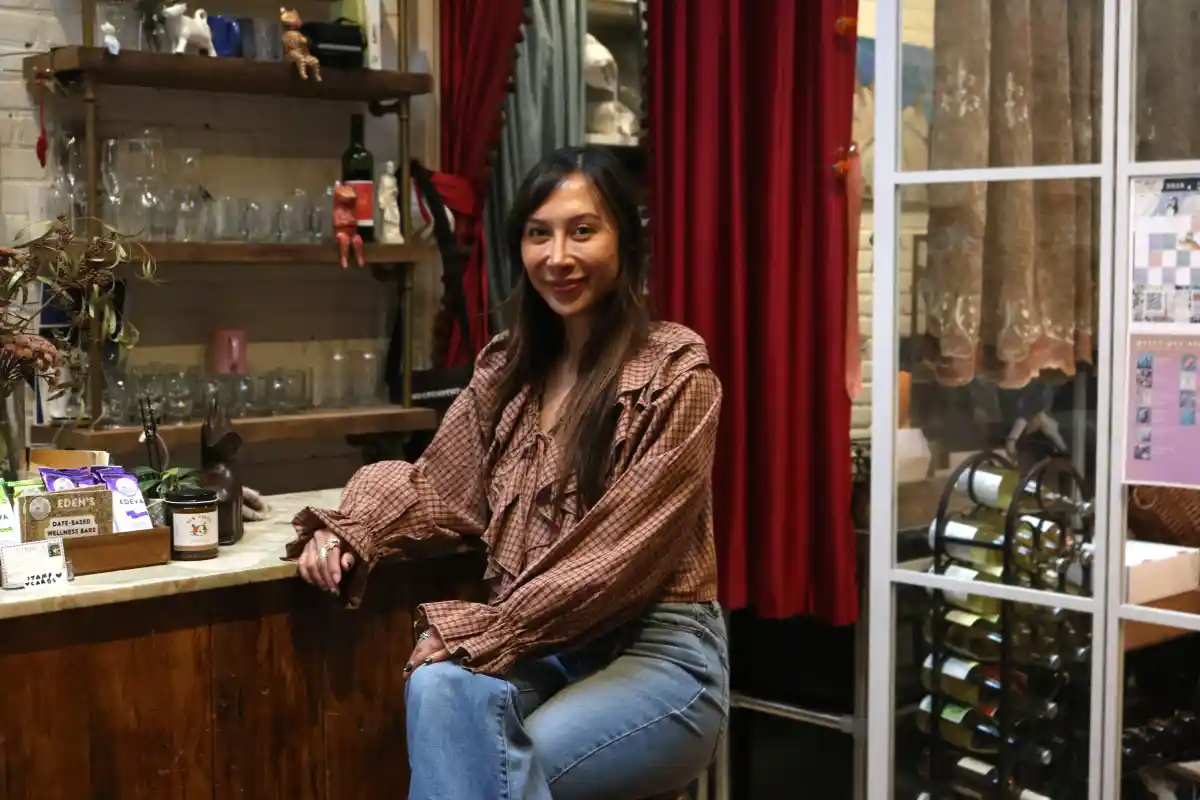Can Ditmas Park Save The Middle Class?
Despite tremendous quality-of-life gains, more residents left New York City in 2006 than in 1993. (Brooklyn was the one borough that bucked that trend.) The main reason, says an article from the American Enterprise Institute, is the the rising cost of living for middle-class families. In fact, New York now has the lowest rate of…

 Despite tremendous quality-of-life gains, more residents left New York City in 2006 than in 1993. (Brooklyn was the one borough that bucked that trend.) The main reason, says an article from the American Enterprise Institute, is the the rising cost of living for middle-class families. In fact, New York now has the lowest rate of middle-income families of any city; and, except for Los Angeles, it also has the smallest percentage of middle-income neighborhoods. One exception—and a model for the future—is Ditmas Park:
Despite tremendous quality-of-life gains, more residents left New York City in 2006 than in 1993. (Brooklyn was the one borough that bucked that trend.) The main reason, says an article from the American Enterprise Institute, is the the rising cost of living for middle-class families. In fact, New York now has the lowest rate of middle-income families of any city; and, except for Los Angeles, it also has the smallest percentage of middle-income neighborhoods. One exception—and a model for the future—is Ditmas Park:
The ‘place’ Ellen and Joe looked for was not just a physical location but something less tangible: a sense of community and a neighborhood to raise their hoped-for children. Although they considered suburban locations, as most families do, ultimately they chose the Ditmas Park neighborhood of Brooklyn, where Joe had grown up. At first, this seemed a risky choice. While Joe was growing up in the 1980s, the neighborhood—a mixture of Victorian homes and modest apartments—had become crime-infested. The old families were moving out, and newer ones were not replacing them. Yet Joe’s Mom still lived there, and they liked the idea of having grandma around for their planned-for family.
Politicians genuflect to the idea of maintaining a middle class, yet their actions suggest otherwise. In a city that has been losing middle-class families for generations, the resurgence of places like Ditmas Park represents a welcome change. In recent years, child-friendly restaurants and shops have started up along once-decayed Cortelyou Road. More important, some local elementary schools have shown marked improvement, with an increase in parental involvement and new facilities. Even in hard economic times, the area has become a beacon to New York families, as well as singles seeking a community where they will put down long-term roots. There’s an attempt in this neighborhood to break down the city feel and to see this more as a kind of a small town, notes Ellen. It may be in the city, but it’s a community unto itself, a place where you can stay and raise your children.
If cities like New York want to nurture their middle-class populations, the article suggests, they will need to shift their priorities away from “subsidizing developers for luxury mega-developments, new museums, or performing arts centers” and instead focus on “those things critical to the middle class such as maintaining relatively low density work areas and shopping streets, new schools, and parks.” In our opinion, at the end of the day, it’s all about the schools.
The Luxury City vs. the Middle Class [The American]





oy, you people! First of all, the $1 million price tags aren’t likely to hold up in this environment and the fact is that most people who live in DP didn’t pay anything near that for their homes — these houses don’t turn over that often.
I live in DP and who are my neighbors? Across back yard fence — Pakistani family with a little contracting business and illegal tenants. North side of my house: Guyanese family with a day care center and a barbershop. South side of my house: retired couple with a couple of illegal tenants. Up the street: a couple of teachers, a freelance photographer, an MTA employee, an artist married to a health care worker. Across the street: Asian lady who works in the bakery. Around the corner, a few more Dept of Ed employees. We are just rich, rich, rich in Ditmas.
And Rob, you have no idea about the costs of raising children. It’s true they can be raised very cheaply, but basic middle class enrichments — music lessons, a sports team here and there, and maybe summer camp — plus saving for college and paying for enough space for a family — it’s a lot.
wine lover, don’t be blaming your kids for your expenses. It’s your status anxiety. Kids are pretty inexpensive–schools are free, two meals a day and healthcare are subsidized, and the world is filled with bigger kids who can pass their clothes along. Of course, we want more than that for our kids, don’t we, so we move to this neighborhood and shop in that store and maybe even pay an outrageous tuition but definitely lay out for some “enrichment.” But that’s on us, not our kids. Those are our values–and they will be our children’s values, since they learn what they live. So I expect we will have many more years of rich people bemoaning how “poor” they are.
Guys, you are doing well. You are choosing expensive neighborhoods, clothes, groceries, etc. Open your eyes and look at the Brooklynites who do NOT have these choices. Who are REALLY struggling. Even less expensive neighborhoods way the hell out have houses going for $500K–meaning a family would need an income of $200K and a downpayment of $100K to truly afford it. Some folks may have profited from this RE market, but it has really screwed the middle and working classes.
Consider that you are lucky enough to have options. Then, I don’t know, consume less and appreciate more. Or at least quitcherbitchin.
i had to LOL at the posting of 4 properties under a million bux just now. still not accessible to the working OR middle class. next!
*rob*
I am working class- my father took it as a point of pride and so do I. I’m sure most people here would probably consider me poor and maybe income wise, I am. But that’s neither here nor there. What’s more important is whether or not NYC (and that includes all the boroughs- which are so not suburbs of Manhattan) will make it next to impossible for anyone who is not rich to live here.
In a city this size it is all things to all people- in fact it has to be. I was born and raised here- not every inch of the city has to be packed like sardines. that seems to be a function of number-crunchers who rarely get out of the office and go look at what a living, breathing neighborhood looks like. That’s the biggest mistake city planners (and I use the term loosely) make.
crimson, please don’t assume. you know the the old saying, im sure. excuse me for not thinking nyc is some kind of special place. for many people it’s just some random place they wound up in and don’t care all that much about. deal with it. it always irks me when people think they are special and above others because they live in new york city.
*rob*
> “Yeah, okay, go ahead and “feel” middle class if it makes you happy,
> but please be honest about the fact that you are QUITE well off compared
> with the vast, vast majority of your fellow city dwellers.”
BINGO! Well said.
While the gorgeous Victorians in Ditmas Park may be out of reach for someone on a budget of less than $100k yr (like myself) there are plenty of 2/3 bedroom coops/condos that are going for around $400/$450k that, with another year of savings, I hope to purchase myself. (go me)
It is completely possible to live a “middle class” lifestyle on less than $100k/ yr in many neighborhoods in this city, including where I live in PH. Being middle class is indeed a lot about choices- you can choose to buy into what Martha Stewart tries to sell you or you can opt out.
I can go on and on about the number of women I know like myself who support their families while their husbands stay home with the little kids. Middle class doesn’t necessarily need 2 earners, or daycare, or nannies, or any of the other ridiculously expensive “stuff” that people talk themselves into thinking they need to be “middle class”. I really do think the whole middle class idea is just a state of mind.
I suppose it depends on what part of the Slope you are talking about, Santa.
There are quite a few rent stabilized apartment buildings in Park Slope, not to mention many people who have been in the neighborhood for a very long time.
There is more economic diversity than you think.
Jeebus, I really HATE it when someone claims that NYC households making 150-250K “feel” middle class. Yeah, okay, go ahead and “feel” middle class if it makes you happy, but please be honest about the fact that you are QUITE well off compared with the vast, vast majority of your fellow city dwellers.
And this sense of being squeezed (by your own lifestyle, of course, but no one ever acknowledges that) never seems to generate a sense of sympathy for those with much less. Instead, it just becomes a point of victimhood, like those a**holes in the New York Magazine article about those financial sector workers who are outraged that anyone thinks they didn’t actually DESERVE their enormous bonuses because they are so “productive”. “WE pay so much tax, WE support everybody else, I’d like to see you all get on without us…”
I guess it’s tough to make 250K in this city because then you’re in a position to have a glimpse of the rear ends of the really truly rich people who’ve taken over Manhattan and parts of Brooklyn. Maybe your kids go to school with their kids and you have to hear about their safari and ski vacations, extravagant birthday parties, etc.
For most of us, that world is so far out of sight, it isn’t relevant. But if you’re close enough to smell their feet, it seems you get envioius and feel deprived and “middle class.”